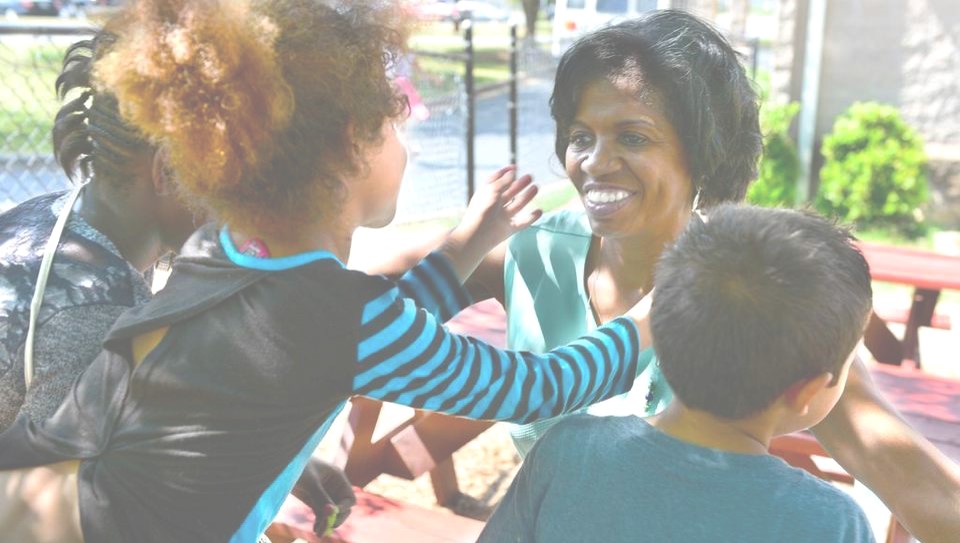Sobering Realities
April 17, 2024
Local Leader Reflects on Homelessness and Nonprofit Work
In 1990, a social work intern named Deronda Metz became a resident monitor at the Center of Hope – the homeless shelter run by The Salvation Army of Greater Charlotte (SAGC). The internship was a part-time, weekend gig and a requirement of her graduate studies. It paid $4.25 an hour and pulled on every heartstring she had. Three decades later, that intern is taking a moment to reflect on her career and celebrate her retirement.

Deronda Metz – Photo Credit: SAGC
Throughout her tenure as Director of Social Services for the SAGC, Deronda saw people, places, and partnerships come and go. In fact, she herself contemplated leaving at the conclusion of her internship because she was also working full-time for HeadStart.
“I felt very passionate about HeadStart because in 1966, when it started, my twin and I were part of the first HeadStart class here in Charlotte,” Deronda explains. Her job with that organization paid more, but her initial exposure to the Center of Hope left such an impression that she followed her heart and eventually accepted an offer from the SAGC.
The onset of shelter work was tough, but Deronda is no quitter. “During those days,” she recalls, “we didn’t have a lot of homeless families because we had public housing. It was mostly single women that we served, and they displayed more mental health challenges.”
Gradually, Deronda and her team turned the SAGC’s overnight shelter into a 24/7 operation that provides wraparound programs and mental health services.
The learning curves were steep, and Deronda is candid about the struggles, especially those pertaining to funding.
“Were nonprofits operating in silos in Charlotte back then? Absolutely. It was so territorial and competitive. People would compete for dollars by putting down other agencies, and there was a lot of tension. We weren’t getting the kind of philanthropic investments we get now; it was mostly government dollars and individual contributions.”
Then, the U.S. Department of Housing and Urban Development (HUD) mandated that local organizations work together. Deronda says, “You had to come to the table and show how you were partnering.” She chuckles. “In the early years, the collaboration was just on paper. Then we actually had to start signing MOUs with each other.”
At first, this was hard for the SAGC because of its breadth. “People thought we were trying to do it all,” Deronda observes. “I guess on some level, I was. But it wasn’t because I wanted us to be bigger than a ‘competitor.’ It was because I saw that people weren’t getting served. If nobody wants to serve a population, like dads in homeless family units, then I’m going to get over in that space and make sure they have a place to go.”
Along with her staff, Deronda addressed the evolving nature of homelessness head-on. Her tenacity birthed programs like the Supportive Housing Innovative Partnership (SHIP), which she launched with Inlivian (formerly the Charlotte Housing Authority). At the time, it was a contentious move.
Prominent government officials and nonprofit leaders were, she shares, “very angry.” She remembers the day they approached her to air their concerns.
“They told me I was setting people up to fail because my expertise was in the shelter, not transitional housing. I left that meeting and called our Salvation Army officer. I was so scared and said I didn’t think we could move forward with the program. And he said, ‘We’re going to do it.’
“I realized, in that moment, I had to put the passion, the needs of the homeless community, before the politics and before the people pleasing. I was in the trenches in the shelter, watching people trying to get in and then trying to get out. I decided I would work respectfully with anyone to better serve the homeless, and I hope I’ve had that reputation throughout my career.”
Deronda is relieved that Charlotte’s nonprofit sector looks much different today.
“I’m just in awe of how full circle it is. What we’ve learned is that when we work together, we’re winning. We have a greater impact on ending homelessness.”
She adds, “One of the most exciting things to happen in recent years is seeing the city, the county, United Way, and nonprofits at the table for the same cause. And they’re using people with lived experience and allowing their voices, which are the most powerful, to drive the process.”
Although Deronda is giving up her seat at that table, she is at peace with her recent decision to retire from the SAGC. She knows that Charlotte is moving in the right direction. Smiling, she says, “I do have other hobbies outside of homelessness, so I’m looking forward to more flexibility and the ability to focus on things I’m passionate about, like domestic violence and human trafficking. Charlotte is the community where I grew up, and I love it. I still feel like I want to be part of the solution.”
As she finishes considering the highs and lows of her SAGC tenure, Deronda offers a parting word of encouragement to the next generation of social workers.
“Social work is the greatest field of all because we can do so many things. Always be able to see people, and lead with love. I used to say that to my team. When you have that case file in front of you and you’re looking down at it, look up. Look at who you’re talking to because it’ll make a difference. There are so many social work ethics and principles that are important, but it’s amazing how you can work with people when they feel that warmth and sense that you care about them.”
Spend any amount of time with Deronda, and the warmth is tangible. She’s made a legacy of communicating that shelter is more than a roof and four walls. Shelter is dignity, and shelter is empathy. And Deronda embodies this in such a way that would make that intern from 1990 very proud.
To date, TLLF has awarded over $1.4M to the SAGC and its housing programs.
